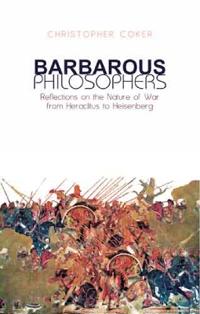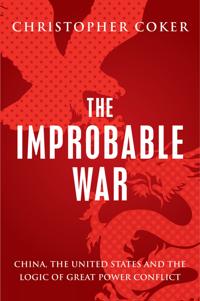Humane Warfare (Häftad)
avChristopher Coker
ISBN: 9780415255769 - UTGIVEN: 200108In its attempt to humanise modernity the West is also trying to humanize war. It is trying to purge it of those features such as waste and cruelty which writers such as Clausewitz believed to be intrinsic to true nature. The decision, as in Kosovo, to fight "humanitarian wars" is one illustration of[...]
Ethics And War In The 21st Century (Pocket)
avChristopher Coker
ISBN: 9780415452823 - UTGIVEN: 2008-01-31Explores ethical implications of war in contemporary world. This title explains why it is of crucial importance that Western countries should continue to apply traditional ethical rules and practices in war, even when engaging with international terrorist groups. It examines America's post-9/11 rede[...]
The Future of War: The Re-Enchantment of War in the Twenty-First Century (Övrig)
avChristopher Coker
ISBN: 9780470698952 - UTGIVEN: 2008-04-30Can War Be Eliminated? (Häftad)
avChristopher Coker
ISBN: 9780745679228 - UTGIVEN: 2014-02-28The first book in Polity's exciting new 'Global Futures' series, which focuses on the key questions set to determine the kind of world we're shaping for generations to come. This short, punchy book makes a bold and compelling case for the continuation of war through the 21st century and beyond.[...]
The Future of War: The Re-Enchantment of War in the Twenty-First Century (Inbunden)
avChristopher Coker
ISBN: 9781405120425 - UTGIVEN: 2004-11-30The Future of War: The Re-Enchantment of War in the Twenty-First Century (Häftad)
avChristopher Coker
ISBN: 9781405120432 - UTGIVEN: 2004-11-30Barbarous Philosophers (Inbunden)
avChristopher Coker
ISBN: 9781849040891 - UTGIVEN: 201008This is not a book about philosophy and war. It is a book on contemporary conflict in which the author invokes philosophy to help understand the problems that we face in fighting war today. Barbarous Philosophers sets out to discuss the nature of war through the work of sixteen philosophers from He[...]
Warrior Geeks (Inbunden)
avChristopher Coker
ISBN: 9781849042543 - UTGIVEN: 2013-02Warrior Geeks examines how technology is transforming the way we think about and fight war, taking three major changes that are driving this process: cybernetic technologies that are folding soldiers into a cybernetic system that will allow the military to read their thoughts and emotions and mould [...]
The Improbable War (Inbunden)
avChristopher Coker
ISBN: 9781849043960 - UTGIVEN: 2015-02The Improbable War explains why conflict between the USA and China cannot be ruled out. In 1914 war between the Great Powers was considered unlikely, yet it happened. We learn only from history, and popular though the First World War analogy is, the lessons we draw from its outbreak are usually mist[...]












